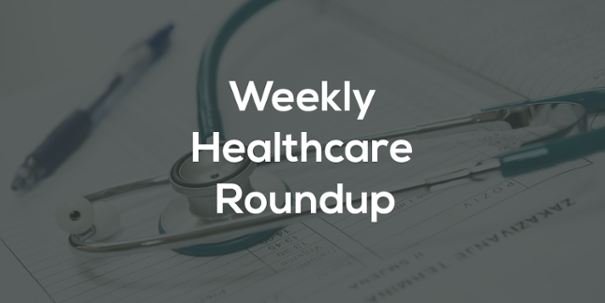Weekly Healthcare Roundup: August 14-20

Weekly Healthcare Roundup: August 14-20 August 19, 2016
This week, e-prescription vendor and Elation partner Surescripts released new data that 77 percent of prescriptions were electronically delivered last year, a jump from 67 percent in 2014 and 58 percent in 2013. With e-prescriptions growing in popularity, how can e-prescribing contribute to curbing the prescription drug epidemic that’s already cost thousands of lives?
Here’s what we’re reading:
E-PRESCRIPTIONS INCREASING – The number of controlled substances prescribed electronically increased 7.5 times between 2014 and 2015, according Surescripts’ data. It’s possible a New York mandate that required e-prescribing for all controlled substances helped create the spike. With 3 to 9 percent of drug diversions occurring via forged and stolen paper prescriptions, policymakers hope this technology could play a role in reducing opioid deaths.
MISLEADING DATA ON MEDICAL ERRORS – According to New York Times writer, Aaron Carroll, the data on medical error deaths is overblown and misleading. Carroll explains that while the number of hospital deaths related to preventable medical errors is steadily rising, that’s based on limited evidence and the true number is likely a small fraction of what’s being reported. He adds that the potential benefits of going to a hospital still strongly outweigh its potential harms.
PUBLIC HEALTH COULD USE SOME HEALTH IT – A group of researchers recently completed a two-year “intensive analysis” of information sharing between public health officials and doctors. They found that health departments are lacking the proper IT investments and expertise needed and that incidents like the current Zika crisis should bring this issue to the forefront. The group also advocates for “seamless data integration across acute care (hospitals), primary care (clinics and other ambulatory facilities), and public health delivery locations,” in an effort to counter public health IT challenges.
IS PRIMARY CARE THE BEST AND WORST JOB IN MEDICINE? – The Commonwealth Fund, a private foundation that carries out independent research on improvements in healthcare wrote a feature story on a group of primary care doctors in the US and UK. The physicians discussed the dissatisfactory aspects of working in the profession, primarily the demanding schedule and increasingly bureaucratic environment, but the interviews also revealed some of the more overlooked and rewarding facets of working in primary care.
DOES PHYSICIAN EMPATHY ACTUALLY LEAD TO BETTER OUTCOMES? – Physician Michael Stein authored a piece in the New York Times where he ponders about whether kindness and empathy actually lead to improved patient outcomes. Stein says it’s hard to find scientific evidence to prove this prevailing theory and through the course of the article offers new ways for us to measure the effects of physician empathy. In the end, he argues that even if existing evidence is conflicting, physicians should continue to be kind because it’s simply the right thing to do.
Thanks for being a part of Elation’s community and reading this week’s edition of our weekly news roundup. If you have any submissions or feedback feel free to email us: questions@elationhealth.com
And don’t forget to follow us on Twitter for more healthcare headlines: @ElationHealth
Read more Weekly Healthcare Roundups here: July 10-16, August 1- 6 and September 11-17.
![]()






